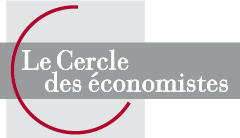Our territories facing mobility
Overview
- Territorial inequalities continue to increase, reinforcing urban exodus within nations and international migration, especially North-South. How can mobility be rethought to reconcile territories and individuals in an increasingly globalized society?
- As the mobility of individuals creates greater interdependence, does this mean that the local level is doomed to disappear?
- Transport and environment: territories in the vanguard or under the yoke of mobility policies?
- Territories vs. metropolises: an irrevocable divide or new synergies?
The place of territories in the face of globalization covers a very wide range of realities and presents a multitude of structural distinctions. While metropolises and megalopolises are increasingly attractive economically and socially, peri-urban and rural areas too often feel abandoned, both by public authorities who take little interest in them and by their inhabitants who desert them. However, the often abusive opposition between “winning” and “losing” territories of globalization deserves to be deepened at a time when our societies find themselves disrupted by crises and disturbances against which it seems difficult to act collectively. For example, the “urban exodus” of people from the Ile-de-France region – among others – in the face of the health crisis has called into question the relationship between urban dwellers and their environment in times of health crisis, with an expression of concern linked, for example, to overcrowding or the lack of green space. In the same way, the question of the best level of decision to govern in the face of the pandemic has been called into question: which of the government, regions, departments or mayors is best able to administer its territory in the face of such an unprecedented health risk? Finally, environmental issues have generated a renewed interest in “local” production, while the digitalization of work has made it possible to decouple the place of living from the place of production.
Thus, faced with the risks of divisions and fractures between territories, which are accentuated in times of crisis – North-South, urban-rural, centre-periphery, local-national – it is essential to be able to reflect on the causes of these discords and the actions to be implemented to mitigate them. Ultimately, the very multiplicity of realities and situations that “territories” encompass makes it possible to discuss and propose collective and concrete responses to the social, health, environmental, economic and political challenges facing us.
Speakers

-
Sharjah investment and Development Authority Shurooq



-
Maire de Nantes & Présidente de Nantes Métropole

Coordinator

Moderator













